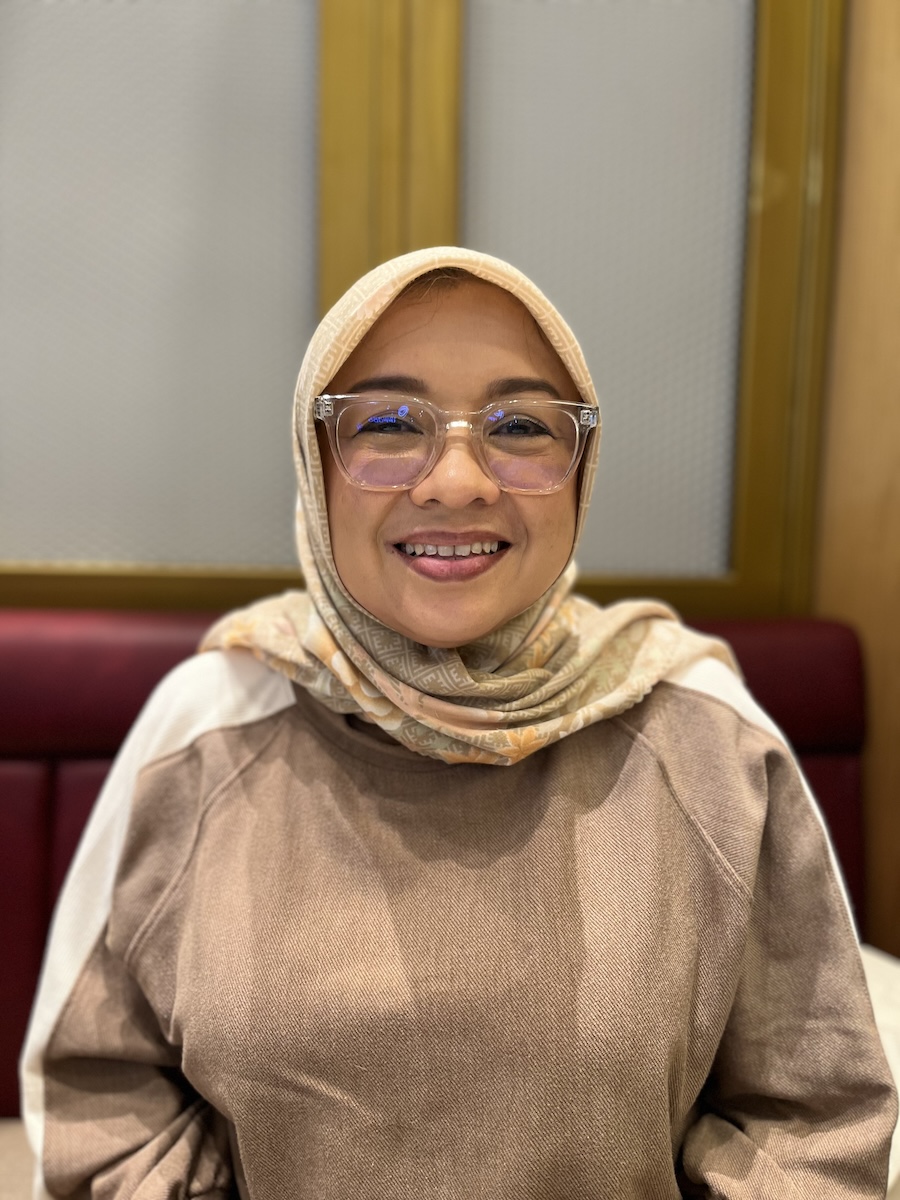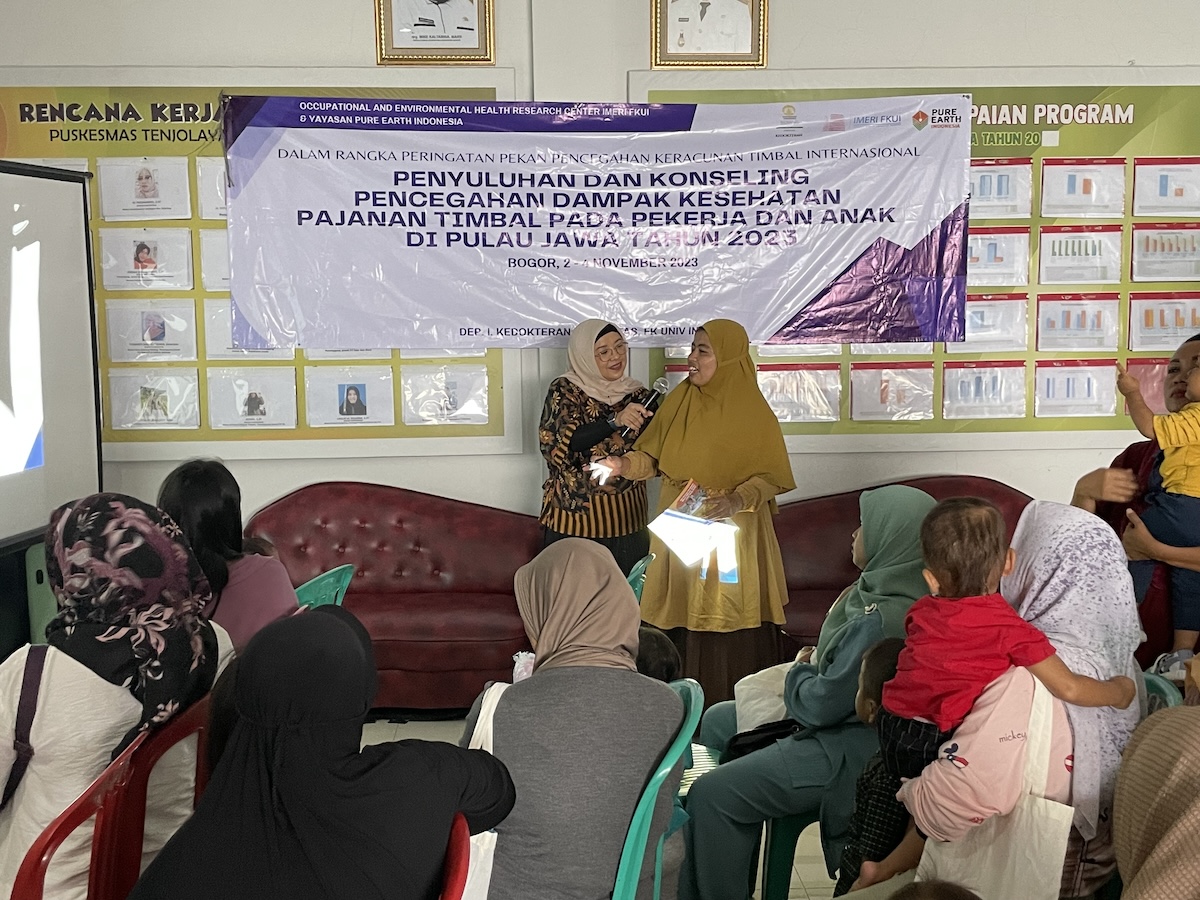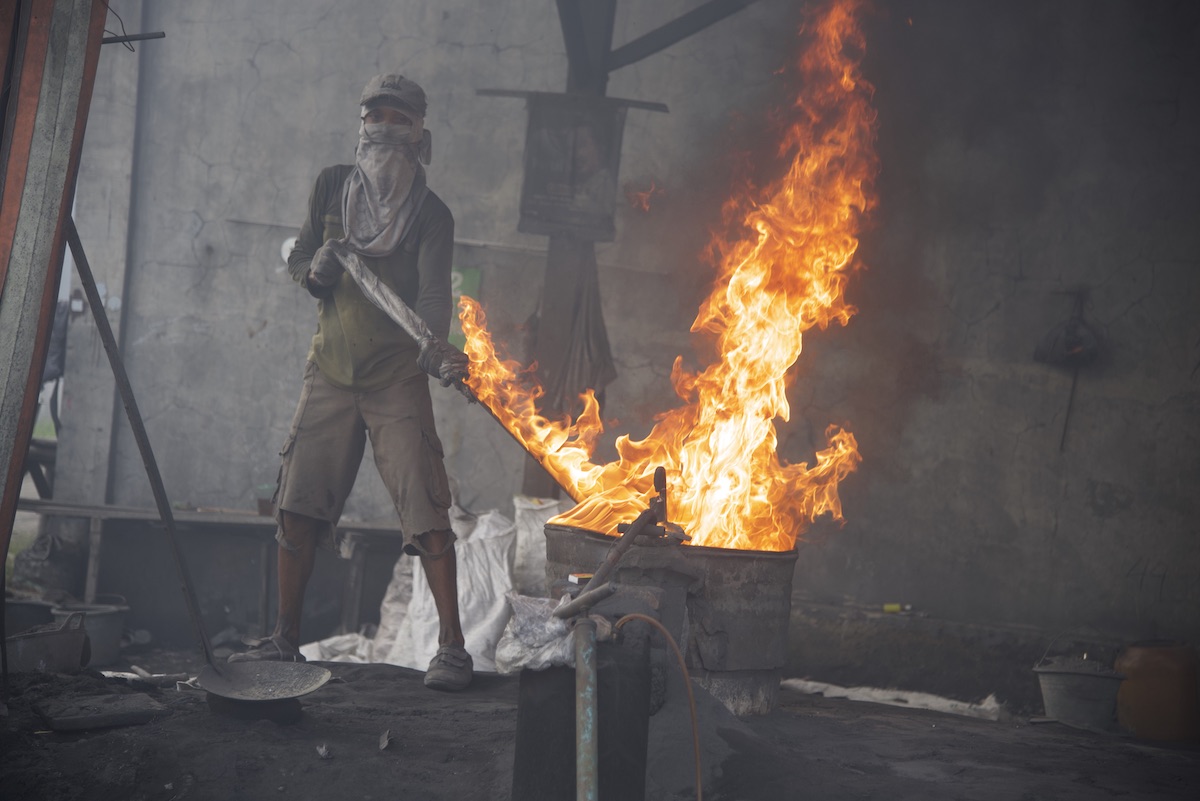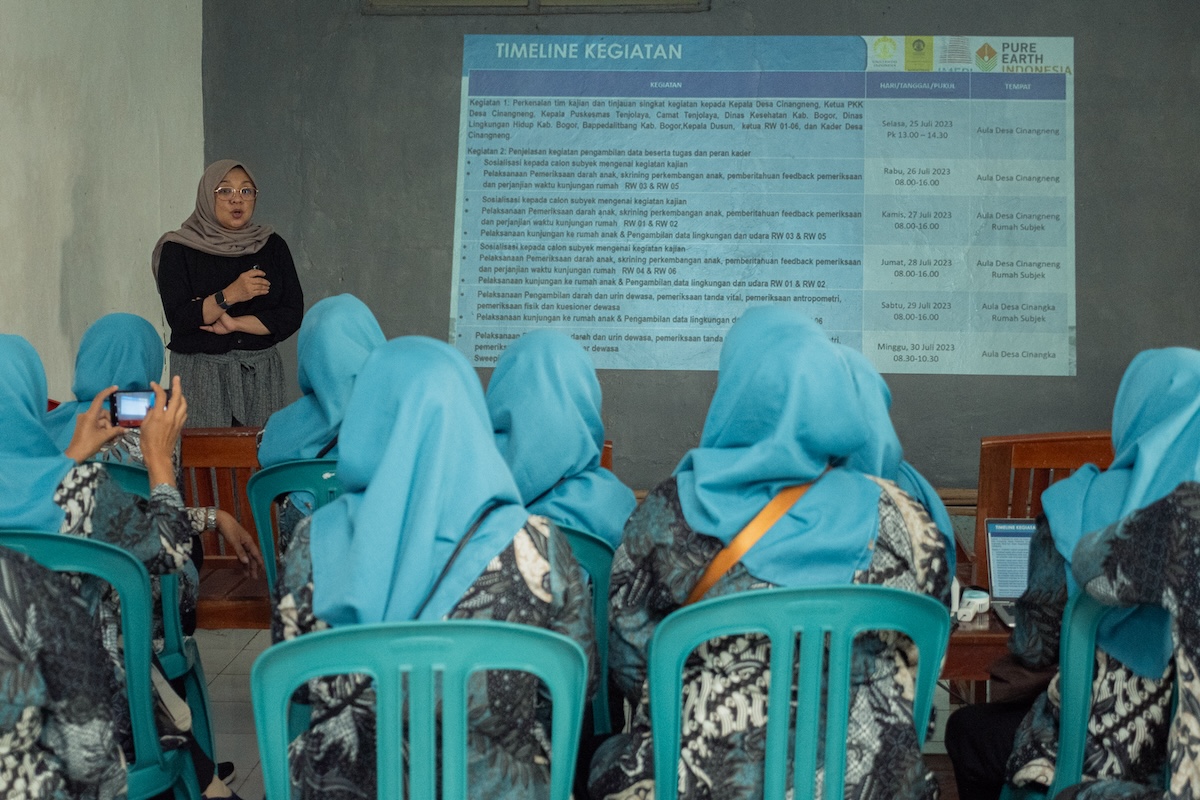KLIK DI SINI untuk membaca artikel dalam Bahasa Indonesia.
The implementation of occupational health programs in Indonesia still faces various challenges. The biggest challenge – according to Dr. Ade Mutiara, MKK, SpOk, – Occupational Health and Safety (OHS) practitioner, is convincing companies about the importance of occupational health. They tend to pay more attention to safety, such as prioritizing the prevention of workplace accidents; but less so to occupational diseases, which can occur gradually over a long period. For example, diseases caused by lead exposure. The causes of occupational diseases are also complex and cannot be immediately identified. Dr. Ade believes this is also why occupational diseases are still underreported in Indonesia. To address occupational diseases, there are several solutions that can be taken, including education and improvement of the competency of health workers, especially those who work in community health centers (Puskesmas).
“Ensuring the health of workers is a strategic effort to ensure the health of the nation” is a belief held by Dr. Ade Mutiara, MKK, SpOk, Occupational Health and Medicine Lead at the Special Task Force for Upstream Oil and Gas Business Activities (SKK Migas) in Indonesia. This drives her love for occupational health and her dedication to growing the field of occupational medicine in the country.
The belief makes so much sense considering as many as 70 percent of Indonesia’s 280 million population is in the productive age group with more than half of Indonesia’s population being workers. Ironically, the number of occupational specialists in the country has not even reached 300 people.
Fell into the field of occupational health
“I dived into the field of occupational health because I accidentally “fell into it”,” recalls Dr. Ade.
Like most medical graduates, Dr. Ade initially wanted to take up a clinical specialty such as surgery or pediatrics. However, her assignment as a medical doctor to a remote area of East Kalimantan through a national mandatory program in 1995, changed everything.
After completing the program in 1998, Dr. Ade worked in a pulp mill there. “Because the area was remote, it was quite difficult to find a doctor. I was immediately assigned to run the company clinic without any background in occupational medicine.”

What began as an unplanned responsibility ended up as a starting point of her long journey in the field of occupational health. “While working at the company, I learned a lot about this field, both through hands-on experience and from exchanging ideas with expatriate colleagues who introduced me to this field. At that time, I had started to enjoy working in this field, but also still wanted to realize my old dream.”
Dr. Ade eventually took up pediatrics upon her return to Jakarta in 2005. But, she eventually found out that it wasn’t meant for her. So, she decided to leave the program.
“It turns out, I’m more suited to occupational medicine,” she chuckled. Dr. Ade sees occupational medicine as a more challenging field for her, ”The working population is an at-risk population. They are exposed to a variety of hazards.”
Dived into the field of occupational health
In 2010, Dr. Ade returned to the field of occupational health by working at one of the largest oil and gas companies in the world, British Petroleum (BP). Based in Papua, Indonesia, she served as a Senior Occupational Health Doctor and was in charge of developing occupational health programs at BP’s Liquefied Natural Gas operations there.
Her experience working as an occupational health doctor in the oil and gas sector for more than 15 years led her to her current position at SKK Migas. As Occupational Health and Medicine Lead, dr. Ade creates standard indicators in SKK Migas’ Occupational Health and Safety program and ensures that all companies operating in the upstream oil and gas industry comply.
“The government requires employers to maintain occupational health in their companies. The regulation on OHS is regulated in Government Regulation Number 28 of 2024 articles 231 – 244. In my job, I ensure that all upstream oil and gas operations comply with those regulations,” she explained.
After previously taking a Master’s degree in Occupational Medicine as well as an Occupational Medicine Specialist Program, which is a collaboration between SKK Migas and the Faculty of Medicine, University of Indonesia (FKUI), Dr. Ade is now taking a doctoral program in occupational medicine at the same university.
Researching lead exposure to help solve it
For her dissertation, Dr. Ade examined the relationship between one of the most toxic metals, lead (plumbum/Pb), and one of the leading causes of death in Indonesia, diabetes.
“Metabolic syndrome (MS) [a cluster of conditions that increase the risk of heart disease, stroke, and diabetes] is a global burden, including in Indonesia. MS is a threat to worker productivity. There have been many studies that show how lifestyle contributes greatly to the occurrence of MS. I am interested in looking at one of the contributors to the occurrence of MS from an occupational perspective, especially exposure to heavy metals. Since lead is the most widely used heavy metal, I try to find the relationship between lead and the occurrence of MS, especially regarding insulin resistance in my research.”
In 2023, Dr. Ade was involved as a researcher in a blood lead level (BLL) study conducted by the Occupational and Environmental Health Research Center (OEHRC) Indonesia Medical Education and Research Institute (IMERI) FKUI and Yayasan Pure Earth Indonesia, in several lead-exposed locations in Java Island, Indonesia. “In that study, we found a relationship between the high BLL of working parents and the BLL of their children,” Dr. Ade shared.

The study found that parents’ BLL exceeding 20 µg/dL increased the risk of high BLL in children by six times. “Parents exposed to lead at work bring lead home,” she explained. This further shows the importance of ensuring the implementation of occupational health, because in addition to affecting workers, in certain cases such as lead, the exposure can also affect those who come into contact with workers, including their families.
The difficulty of shining a light on the invisible
“The Ministry of Manpower’s regulation is clear, which is zero accident. Work accidents occur immediately, and the causes and consequences can be visibly observed,” Dr. Ade said. “This is why workplace accidents can be embarrassing for companies if they occur,” she added.
Occupational diseases, on the other hand, do not occur immediately, but gradually over a long period, ranging from months to years; for example, diseases caused by lead exposure. The causes of occupational diseases are also complex and cannot be immediately identified. “Many doctors don’t understand this. They might think that a worker has a normal disease, even though it could be related to or caused by the patient’s occupation.”
These factors make occupational health receive less attention from companies, despite the existence of regulations governing it. “On lead, for example, there are already regulations governing the threshold of environmental lead and lead absorbed by workers. Companies are obliged to conduct biomonitoring, checking the workers’ BLL regularly, at least once a year. Biomonitoring is done after measuring environmental lead. But not all companies are willing to measure environmental lead because it is expensive.” Even though, Dr. Ade explained, occupational diseases can be costly to companies as they can also interfere with work productivity, which of course has a direct impact on company productivity.

Lack of competence and resources
The challenge of implementing occupational health is even greater in the informal sector. Dr. Ade gave an example of the practice of used lead-acid batteries (ULAB) recycling in Indonesia, which is mostly done informally.
“Actually, there are already regulations regarding this. On paper, this is the task under the responsibility of community health centers or puskesmas. Occupational health is one of their programs. Puskesmas are expected to understand what industries are operating around their areas. Puskesmas should carry out examinations and monitoring of workers who are exposed. Puskesmas in lead-exposed areas, such as in Pesarean for example, should understand and make occupational health efforts for ULAB recycling workers. Puskesmas must examine and educate the public regarding lead exposure which can have negative consequences for the health of workers and their families.”
The problem, according to Dr. Ade, is that most doctors at puskesmas are newly graduated doctors, so they have minimal competence in occupational health. Medical students are generally only exposed to occupational health material for two months out of a total of six years of their medical education.
In addition to the competency, the lack of resources is also the cause of the ineffectiveness of this occupational health program. On average, local puskesmas only have one to two doctors. Whereas, they have many programs that must be carried out, apart from treating patients, such as Integrated Service Post (Posyandu), tuberculosis prevention, and many other programs.
Education as a solution
One of the efforts that can be made, according to Dr. Ade, is to improve the competence of doctors working at puskesmas. This can be done by adding more materials to the occupational health curriculum in medical education. “So when they work at puskesmas they are better prepared to carry out occupational health programs. They would understand the dangers faced by the workers in the industries operating in their areas. Hence, they know what kind of routine checks they have to do.”
Dr. Ade also hopes that more medical graduates will be interested in occupational medicine, considering that occupational health doctors can play a big role in educating companies and workers in the formal sector regarding occupational health.

BLS in Bogor. Source: Yayasan Pure Earth Indonesia.
Although still less popular, Dr. Ade is optimistic about the future of occupational health in Indonesia. Currently, Dr. Ade is active as a secretary in the International Component Society of Occupational and Environmental Medicine (ICSOEM) and the Scientific Committee of Occupational Medicine of the International Commission of Occupational Health (SCOM-ICOH). In addition to introducing the field of occupational health in Indonesia to the international community, through her participation in international professional organizations, Dr. Ade also hopes to get the latest information and knowledge from other countries that might be applied in her home country.
Dr. Ade always believes that what she does has great benefits for the lives of Indonesian workers who in the long run contribute to the health and welfare of the nation’s future generations.





